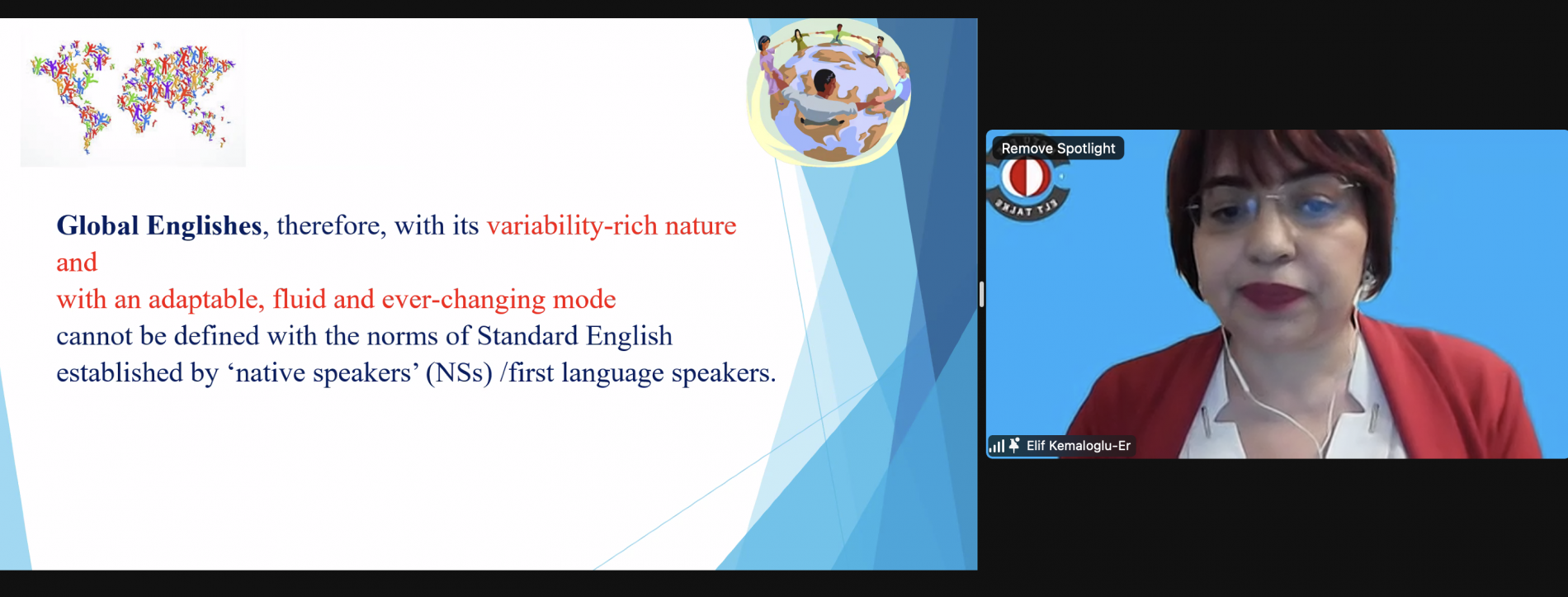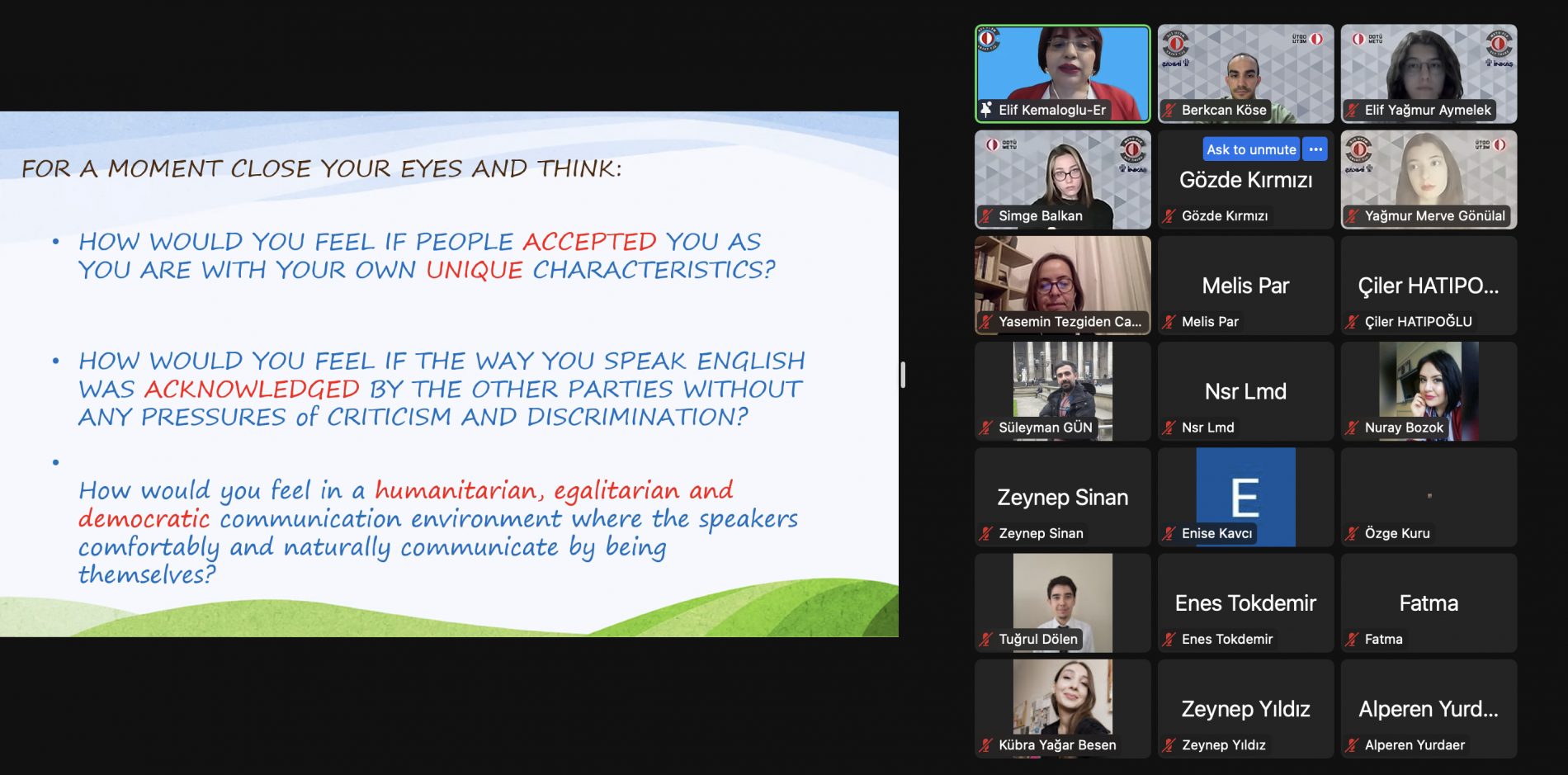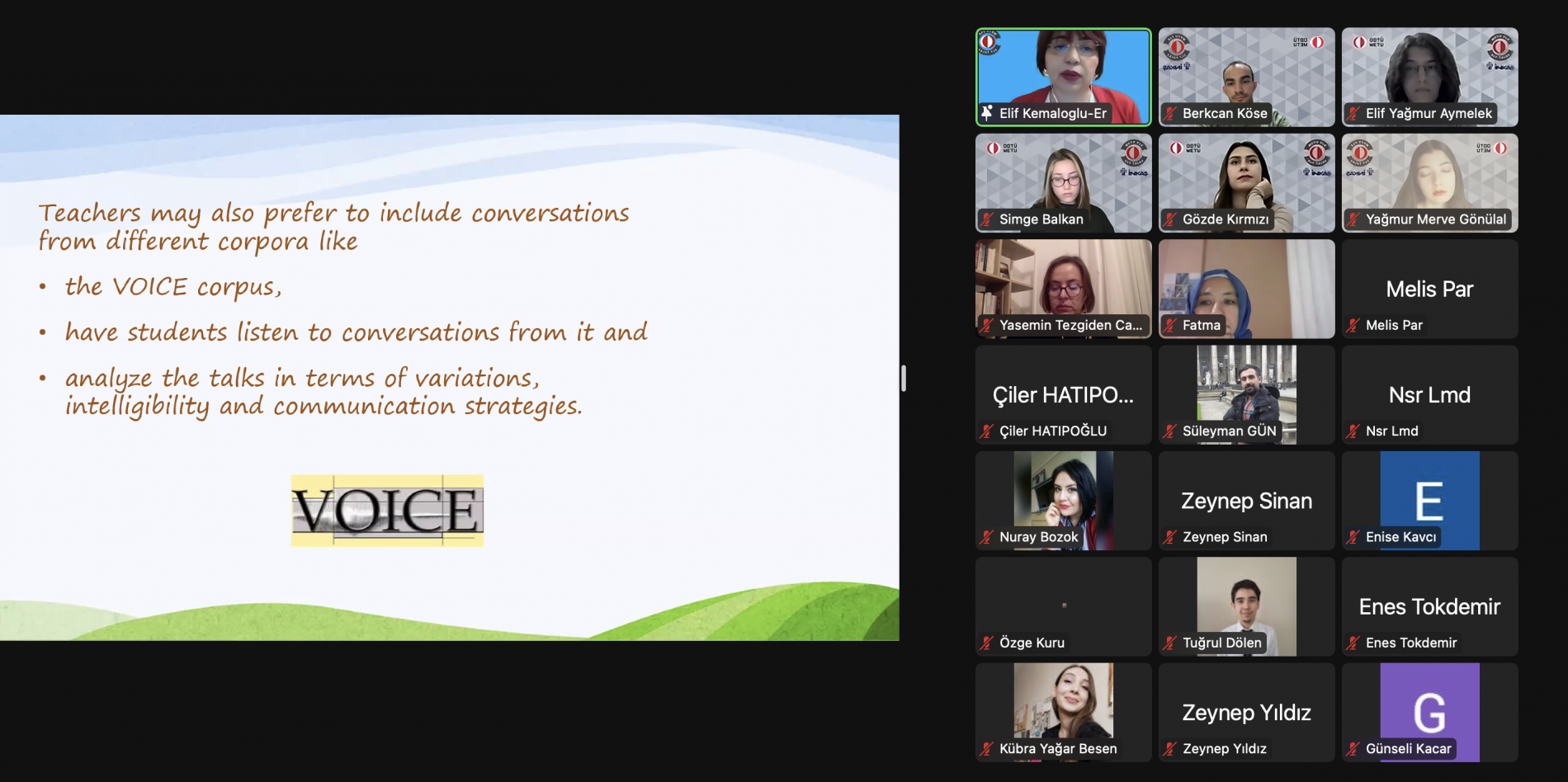METU FLE ELT Talks - Session 18 (Asst. Prof. Dr. Elif Kemaloğlu-Er)
- English
- Türkçe
Session notes:
"As we further advance into the future, English and how we perceive English have also transformed. From the days of a sole focus on grammar and accuracy in pronunciation, we have arrived at prioritizing intelligibility. In fact, as our communication channels became more and more accessible globally, the number of English speakers increased exponentially. Therefore, non-native (second language) speakers of English have outnumbered native (first language) speakers by almost five to one. Undeniably, this also meant certain alterations in language classrooms and pedagogy. One of those concepts that emerged was Global English (GE), and for our 18th session, dear Asst. Prof. Dr. Elif Kemaloğlu-Er was with us to introduce this rich-natured world.
Global Englishes (GE) includes the concepts of World Englishes (WE), English as a lingua franca (ELF), and English as an international language (EIL). As a paradigm, it recognizes multifaceted varieties of English worldwide and accepts global users of English with their own unique characteristics and their own sociolinguist and sociocultural backgrounds. Hence, GE greatly differs from the norms of Standard English in terms of adaptability and variability.
"I learned about GE when I started doing my PhD through some ELF-related courses," says Kemaoğlu-Er, "and my GE-related research and publications mainly focus on four items: Comparison of native and non-native speakers (NNS), GE-aware pre-service teacher education, meanings of GE-related concepts, and Global Englishes pedagogy."
After mentioning key aspects of her personal journey with GE, Kemaloğlu-Er emphasized GE as a mindset. "GE says accept and include. Accept non-native varieties in their own right and accept non-native speakers with their own characteristics."
Consider this for a moment: How would you feel if people accepted you as you are with all of your unique characteristics? How would you feel if the other parties acknowledged the way you speak English without any pressures of criticism and discrimination? "You would possibly feel comfortable, free, and peaceful," said Kemaloğlu-Er. "You would feel accepted, and you would feel as you are." Therefore, GE can be re-mentioned as a humanistic sociolinguistic phenomenon, with Kemaoğlu-Er's words, "A life of its own with linguistic, pragmatic, and cultural flexibility and contextualized experiences."
Regarding pedagogy and integration, GE is against native-speakerism, a notion that assumes native speakers are the authorities and owners of the language and, overall, superior to non-native speakers. Native-speakerism also advocates non-native speakers perceiving native speaker competence as the ultimate target to achieve. On the other hand, GE is a pluricentric and post-normative approach that accepts non-native varieties in their own right rather than assessing them against native benchmarks.
"I have firmly supported GE since I learned about it, as I have always felt myself to be different from native speakers, and my English to have a life/story of its own that is not similar to a native speaker's English."
The integration process of GE can take different forms, such as explicit, implicit, and even both. In the explicit integration, direct reference to GE and related terms would be given through video and audio displays of non-native speakers. Learners would also be expected to critically reflect on and discuss the given GE-related topics. Implicit integration of GE, however, would not include any direct and open reference. Instead, there are GE-related components such as video displays of non-native speakers, conversations and intelligible variations that are not corrected by the teacher. The teacher would enrich their lessons through materials while they would not reveal the rationale.
As a result, the four main components of GE-aware pedagogy are the displayment of different varieties of English, the inclusion of local cultures, allowance of L1 use for the improvement of English, and error correction with a focus on intelligibility.
The world will change, and it continues to change even right this second. As prospective creators of the future, we should not let certain biases and rigid beliefs determine our understanding of ourselves and our teaching. GE is only the beginning of the path of self-discovery and acceptance of the unique nature of language and human beings.
We would like to conclude with Kemaloğlu-Er's advice: "Belief in GE makes you more confident. So, with your confidence and speaking style, as a GE-aware non-native teacher, you can act as a role model for your students. Accept yourself as an NNS and interact with your students to remove the distance they might have with English. Remember, the real change starts with you."








